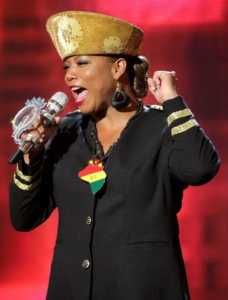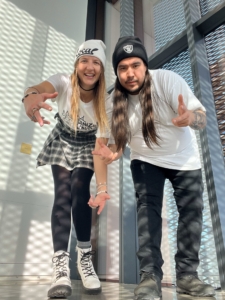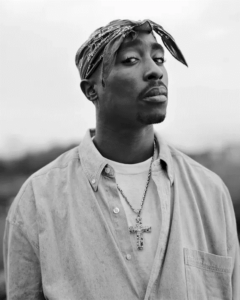“How Hip-Hop Can Save the World” – Part 3: Community
This is the last of three articles in the series How Hip-Hop Can Save the World by Khodi Dill. This edition focuses on hip-hop’s potential to strengthen community.
Community. It may be difficult to admit, but, as of late, we seem to be losing it. In a world so divided, so disconnected, where online echo chambers prevail, we are beginning to lose touch with the very notion of community. Perhaps it’s the politics. Perhaps it’s the post-pandemic surge in human loneliness, where “social distance” takes on a new meaning to describe the emotional chasm that exists between neighbours, colleagues, and even former friends the world over. Even some families have been torn apart by social division. But I believe that underneath it all, we all continue to crave connection. We continue to crave community. And I’m here to share how hip-hop, in all its glory, can help us build it back.
My pitch for hip-hop’s community-building assets really begins with the first two articles in this series. In the first, I wrote about how hip-hop was an effective tool for building equality. Ironically, not many people think about community when they consider equality. Rather, words like “equity” and “equality” tend to conjure up notions of distinct groups all fighting for their own singular cause. Opponents of “woke” politics decry the struggles of these communities as divisive and destructive to the fabric of whole nations. But what these opponents fail to recognize is the true end goal of most equity seeking groups – to live in harmony and in community with the diverse humans around them, to live without fear for their emotional and physical safety, without fear for their lives. These aspirations and fears have long been and continue to be prominent themes within hip-hop. See Queen Latifah’s U.N.I.T.Y. for a prime example.

Pictured: Queen Latifah
The second article in this series focused on how hip-hop can help boost mindfulness and creativity. There, I discussed how hip-hop can be a welcome haven from the world of distraction that awaits us every time we pick up our phones or otherwise enter the busyness of everyday life. But the mindfulness that hip-hop offers those who engage with it can also provide a presence of mind that allows people to be open to each other and to be much more attentive to the needs of their neighbours, friends, and community. Meanwhile, the collaborative creativity of the hip-hop cypher (a circle wherein artists gather to share their art) provides a model for the good that can come when a community decides to listen to one another, challenge each other, and uplift each other with enthusiasm, gratitude, and mutual respect. Egalitarian, democratic, and encouraging of open dialogue, cyphers may just be the microcosm of community we ought to aspire to emulate as a society.
That may be why yxe-based artists like Zoe Slusar, aka ZHE the Free, and Anthony Pasqua, aka Big Tones, have focused their youth work around the model of the hip-hop cypher. The two emcees share a combined thirteen years of experience leading youth through community focused empowerment exercises using hip-hop as a catalyst. Through programs like Cypher Club, Mic Drop, and Cypher Connect, their hip-hop workshops have inspired and uplifted youth from towns and Indigenous communities across the prairies. I had the pleasure of speaking to ZHE the Free and Big Tones, who are both extremely talented emcees, about the passionate work that they do with young people.
“Hip hop helps build community because it allows people to be vulnerable and compassionate,” shared Big Tones. “And the cypher is where the magic happens.” The rapper shared how youth in a cypher circle can be “creatively expressive in ways that create authenticity.” Big Tones discussed the avenues that hip-hop provides to tell stories about personal struggles and triumphs, which can be monumental and life changing for both the young people rapping and those gathered to listen. Calling the cypher a “spiritual place of genuine expression,” Big Tones articulated how the vulnerability that young people embody when they enter a cypher allows for both artists and mentors to fully see and understand each other – a recipe for connection, relation, and, yes, community.
ZHE the Free echoes these feelings, sharing, “Hip hop helps build community because creative expression with beats, rhymes and movement is an organic place to play and connect. Hip hop allows people to express authentically and feel seen, heard and celebrated.” In her own words, she and Big Tones are committed to helping young people in diverse communities “feel their light,” welcoming an array of talents and forms of expression into the circle – including rap, visual art, spoken word, and even dance. ZHE the Free expressed that at hip-hop camps like Cypher Connect, youth have the opportunity to be their authentic selves and “tap into a culture that’s about unity.”

Pictured: hip-hop artist mentors ZHE the Free and Big Tones
When those camps take place within Indigenous communities, there is a special level of resonance that can occur. Both ZHE the Free and Big Tones talked about the organic connection that exists between traditional forms of Indigenous dance, such as the fancy dance, with the way breakdancing can look and feel in hip-hop. Another connection point lies in the drum-forward music that drives both forms of dance. “The drum is the heartbeat of Mother Earth,” shared Big Tones. Likening the drum sound to the sound of a mother’s heartbeat in the womb, he expressed beautifully how, from time immemorial, the beat has been a call to human connection. When considering the devastating impacts of colonialism on Indigenous communities, Big Tones sees the call of the drum as a way of “bringing back something taken through genocide.” His work with ZHE the Free often enmeshes hip-hop and traditional Indigenous art forms in a way that speaks to youth while connecting them with their past, their futures, their culture, and each other.
ZHE the Free and Big Tones both shared humbly about the positive impacts they’ve witnessed among youth who’ve engaged with hip-hop at their camps. Youth have become more connected, compassionate, engaged, open, confident, and empowered, and have taken these skills forward into their lives and communities, where many have continued to pursue their passions for hip-hop and are currently producing and releasing their own music, performing on professional stages and, essentially, paying it all forward.
“Hip hop saved my life and I aim to inspire others to use creativity as a positive outlet,” ZHE the Free shared in reflection. Personally, I can relate to that sentiment. If it wasn’t for hip-hop, I’m not sure where I would be. I certainly wouldn’t have the confidence, sense of self, sense of culture, creativity, or community that has allowed me to try and uplift others through my own work and music. I’m grateful for artists like ZHE the Free and Big Tones, and for all those artists who are out there giving back – they are countless. The truth is that every time we share our stories, or share our rhymes, we are giving back, making an impact.

Pictured: Tupac Shakur
A quote from the late great Tupac Shakur seems fitting: “I’m not saying I’m gonna change the world, but I guarantee that I will spark the brain that will change the world.” Tupac’s music inspired me to be the best version of myself so that I could show up for my community, and I think he’s got the world-changing formula figured out – let’s just keep telling our stories, rhyming our rhymes, and sparking each other’s brains, inspiring each other. It may not be that any one of us will singularly save the world, but there’s no doubt in my mind that we can do it all together – in community.
– KD
For more information on the hip-hop camps referenced here, or to inquire about hosting a camp in your community, contact zhethefree@gmail.com or anthonypasqua900@gmail.com.


